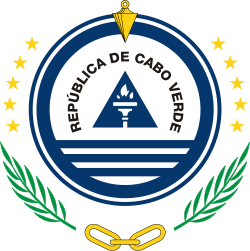17 December 1995 | |||||||||||||||||||||||||||||||||
All 72 seats in the National Assembly 37 seats needed for a majority | |||||||||||||||||||||||||||||||||
|---|---|---|---|---|---|---|---|---|---|---|---|---|---|---|---|---|---|---|---|---|---|---|---|---|---|---|---|---|---|---|---|---|---|
| Registered | 207,648 | ||||||||||||||||||||||||||||||||
| Turnout | 76.52% | ||||||||||||||||||||||||||||||||
| |||||||||||||||||||||||||||||||||
 | |||||||||||||||||||||||||||||||||
| |||||||||||||||||||||||||||||||||
 |
|---|
Parliamentary elections were held in Cape Verde on 17 December 1995. The number of seats was reduced from 79 to 72. The result was a victory for the ruling Movement for Democracy, which won 50 of the 72 seats. [1] Voter turnout was 76.52%. [2]



